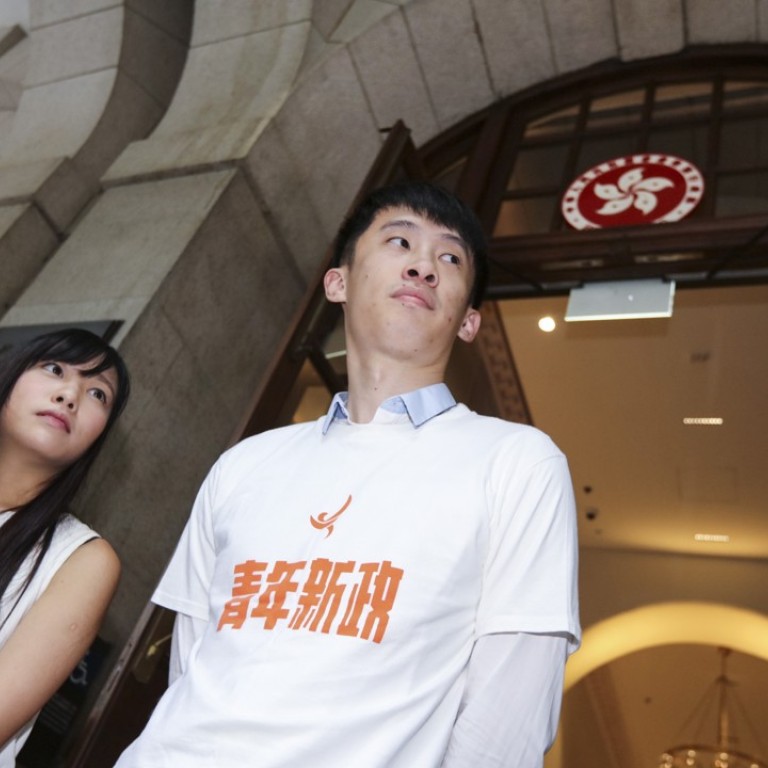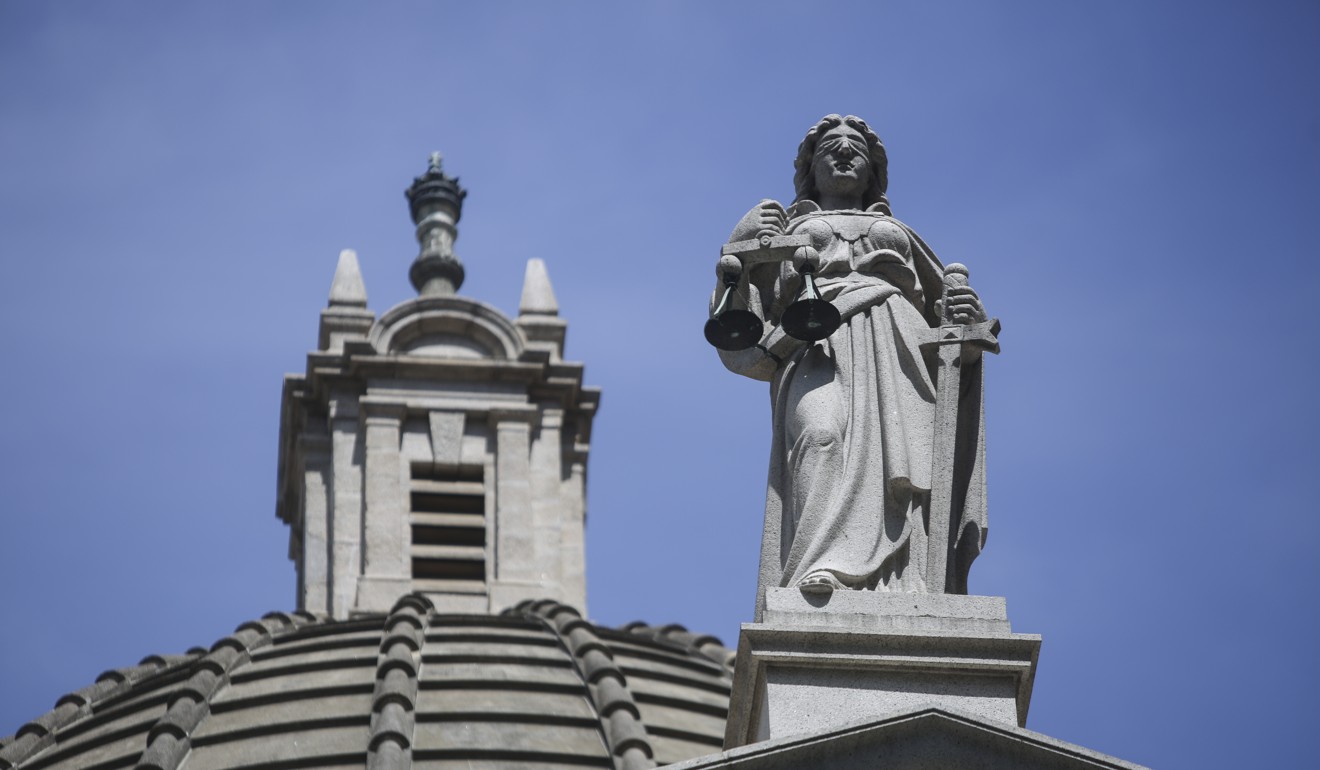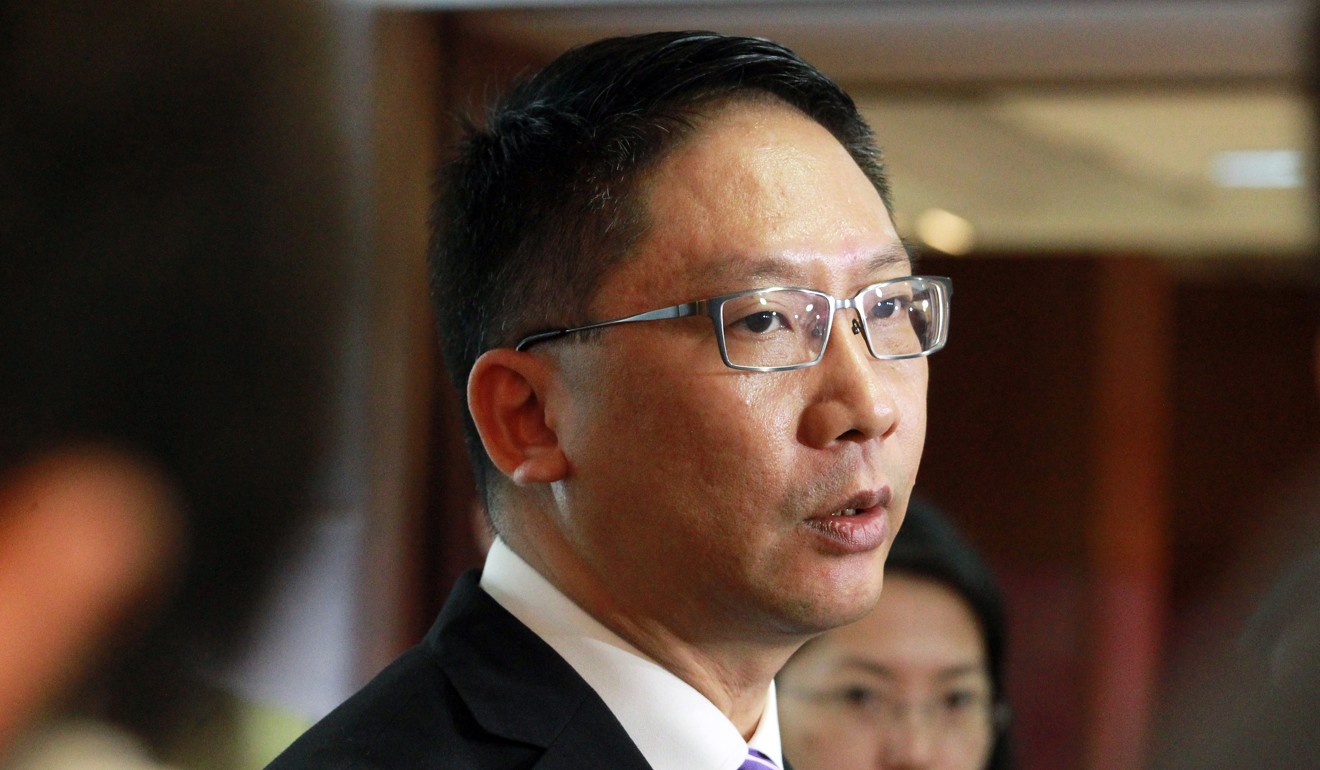
Why did Hong Kong’s top court strike down final appeal bid over oath-taking saga?
Three key factors in the judgment explain why disqualified lawmakers ultimately lost their legal bid to win back their seats in the legislature
Hong Kong’s top court last week refused to give the green light to an appeal bid by two former pro-independence lawmakers who lost their seats in the city’s legislature over improper oaths of office.
Yau Wai-ching and Sixtus Baggio Leung Chun-hang, members of localist political party Youngspiration, were unseated last year after the government took them to court over their antics during their swearing-in ceremonies, during which they resorted to derogatory terms to refer to China and displayed a banner reading “Hong Kong is not China”.
Legal action instigated by former Hong Kong leader Leung Chun-ying and Secretary for Justice Rimsky Yuen Kwok-keung ensued in the following weeks, which saw the pair disqualified from the Legislative Council by the Court of First Instance.
The pair were found to have “wilfully declined and neglected” their oaths at the ceremony on October 12.

The saga led the Chinese central government in Beijing to step in by issuing an interpretation of Hong Kong’s mini-constitution, the Basic Law, to set the record straight on oath-taking. The interpretation laid out a list of detailed additional requirements for oaths.
The pair’s subsequent appeal against the ruling was a failure, prompting them to take their case further – despite a hefty legal bill – to the Court of Final Appeal last Friday.
A week on, senior justices at the top court explained in a detailed judgment why they threw out the duo’s case.
Did all of Hong Kong’s disqualified lawmakers flout the basics of oath-taking?
1. The principle of non-intervention
Lawyers for the Youngspiration pair argued that the oath-taking ceremony in Legco should be covered by the non-intervention principle which states that the courts do not interfere with the affairs of the legislature due to the concept of separation of powers between the branches of government.
Watch: three Hong Kong lawmakers have oaths rejected
The judges refuted that argument with reference to an earlier case. In 2012, former lawmaker “Long Hair” Leung Kwok-hung lodged a judicial review to challenge then Legco president Jasper Tsang Yok-shing’s decision to put a stop to filibustering by pan-democrats in the chamber. The delaying tactics were over a bill that would have barred pan-democrats from resigning from their seats in order to trigger by-elections they said would have been a “de facto referendum” on political reform. A legal principle was featured in that case which specified that whether a court should set aside the non-intervention principle depended on whether the issue at stake touched on the Basic Law.
Oath-taking antics: The acts that got six Hong Kong lawmakers disqualified
The court found that in Leung and Yau’s case, oath-taking involved section 104 of the Basic Law, which required the pair to be sworn in in accordance with the law.
“The question of whether that has been done, when properly raised, is a matter into which the courts are duty bound to inquire,” the justices wrote, justifying the court’s involvement.

2. Vacating their seats in Legco
The lawyers then turned to suggesting Leung and Yau should not immediately have to vacate their offices and should perhaps be given a second chance to take their oaths.
On this the judges said: “If someone inadvertently omitted words of the oath or mistakenly read the wrong oath, it would be a different case because he or she then would not actually be declining or neglecting the oath. The president of the Legislative Council would therefore also be acting lawfully if he allowed the member a chance of a second oath.”
But Leung and Yau were found to have manifestly refused and wilfully omitted to take their oath – an act classed as declining and neglecting it, the judgment said.
Watch: Hong Kong government takes rebel lawmakers to court over oaths
3. Beijing’s interpretation of the Basic Law
The lawyers urged the court to “give a narrow meaning” to Beijing’s interpretation of the mini-constitution, given that the central government’s enormous power meant normal practice – in which an executive branch of government should be restrained in telling a court how to read a constitution – was being deviated from. On this the judges said Beijing’s power to interpret the Basic Law was enshrined in both the constitution of the People’s Republic of China and Hong Kong law. The power was on “general and unqualified terms”, the justices wrote.
National People’s Congress ruling on Hong Kong Legco oath hurt idea of judicial independence: ex-top judge
Interpretations of the mini-constitution were therefore binding on Hong Kong courts from the date of the transfer of sovereignty from Britain to China on July 1, 1997.
The top court, the justices added, had already set out in previous cases the approach to dealing with these interpretations.
“In our view, there is no warrant for resisting those propositions, and Leung and Yau’s contentions questioning their correctness are not reasonably arguable,” they wrote.

